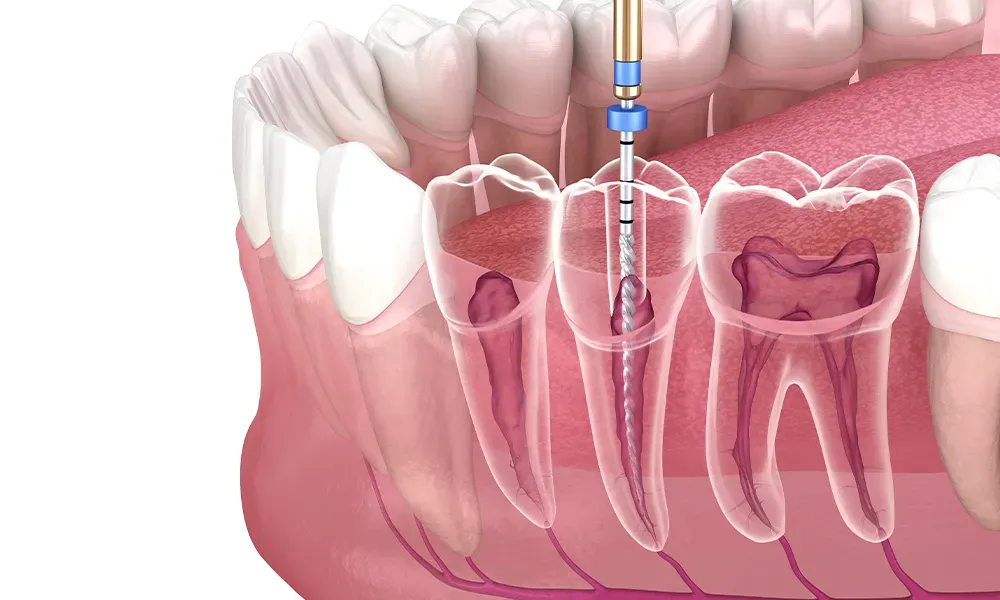An apicoectomy is a minor surgical procedure that aims to resolve your root canal-related issues. If you lose a tooth even after root canal treatment, this could be your way to save it. The process removes the very tip of the tooth’s root and surrounding inflamed tissue. It is called “apicoectomy” because “apex” refers to the end of the root.
Dentists in Ontario may recommend a root canal treatment in case of severe tooth decay. However, in some cases, an infection can occur near the root tip and spread to your jawbone. To save your tooth, your dentist may further recommend an apicoectomy.
To find out whether you are the right candidate for the procedure, you can talk to someone at a reputed dental practice in Whitby,Ontario. Meanwhile, read this blog to learn about its benefits.
How does Apicoectomy work?
An apicoectomy, also known as root-end resection, is a surgery used to save a tooth with persistent infection or inflammation at its root tip. It is a specialized procedure and is only done by root canal specialists or endodontists.
A small cut is made in the gum tissue near the tooth to access the underlying bone and root. Next, with the help of special dental equipment, an endodontist removes the infected tip of the root as well as any infected tissue around the area.
Once the tip and infected tissues have been safely removed, the remaining root canal is thoroughly cleaned, shaped, and sealed by filling a biocompatible material. Finally, the gum tissue is repositioned and stitched back together to promote proper healing.
When and how is an Apicoectomy necessary?
An apicoectomy is essential, not just to retain a beautiful smile but for good oral health. When a root tip becomes infected and left untreated, it can further lead to weakening, fractures, or even tooth loss. During an apicoectomy, this infected tip is removed, saving the tooth.
Moreover, an untreated tooth infection is not just harmful to your oral health. After a while, the infection spreads to your jaw and potentially to your face. In severe cases, germs can enter your bloodstream and cause a widespread disease. It can put your vital organs at risk as well.
Therefore, an apicoectomy is necessary to stop the spread of this infection. The procedure eliminates the source of the infection. Hence, it is recommended to visit your dentist for follow-ups after a root canal treatment.
How painful is an Apicoectomy?

Apicoectomies are not very different from root canal treatments, but the procedure may be slightly more complex. However, thanks to modern techniques, dentists in Ontario are able to help their patients minimize pain and discomfort.
Your dentist will give you local anesthesia before the procedure to prevent the sensation of pain. However, it is expected to feel some discomfort after the effects of anesthesia have worn off after the surgery. A 2008 study found that pain usually subsides steadily within the first few days. In fact, some patients do not take pain medications at all.
For those who do require pain relief, they can opt for over-the-counter medications.
How do you know if you need an Apicoectomy?
Here are the top three signs that you need an Apicoectomy:
- You have persistent symptoms: If pain, swelling, or pus drainage persists around the treated tooth, it could be a warning sign.
- Radiographic findings: Dental X-rays showing ongoing infection, cysts, or growths (granulomas) at the root tip are an obvious sign of trouble.
- Tooth fracture: A fracture near the root tip that cannot be treated with a routine root canal may require an apicoectomy.
Get your root canal checked today!
When you undergo a root canal treatment, you can experience some potential complications, including an infection. Visit your dentist in Ontario today to get your root canal checked and determine if you need an apicoectomy!













Comments